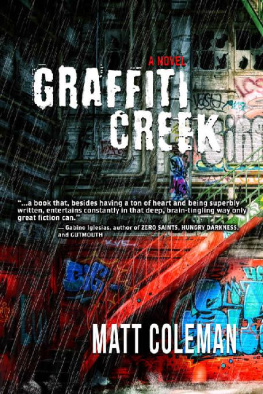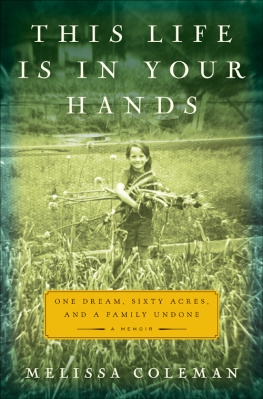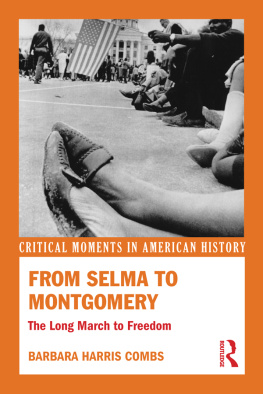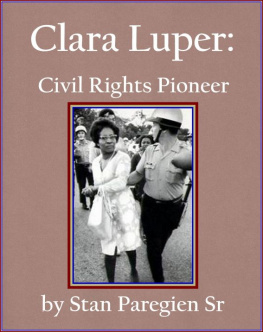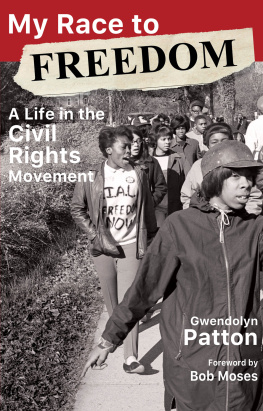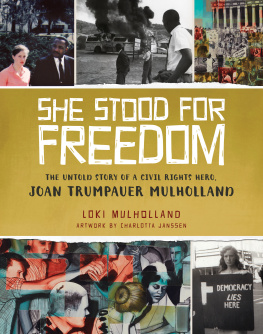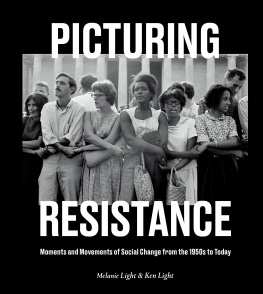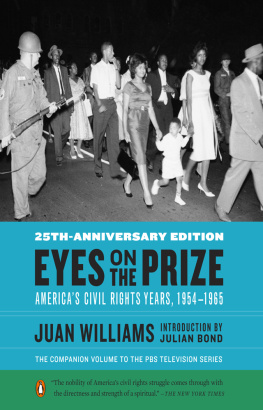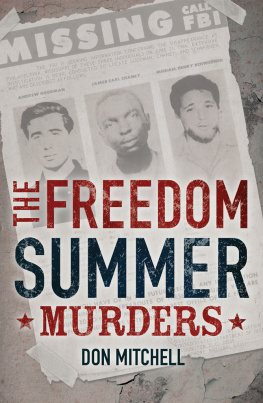Spoke
A Mother. A Son. Civil Rights. Vietnam.
Coleman
Little Creek Press, A Division of Kristin Mitchell Design
Mineral Point, WI USA
Little Creek Press
A Division of Kristin Mitchell Design, LLC
5341 Sunny Ridge Road
Mineral Point, Wisconsin 53565
Editor: Carl Stratman
Book Design and Project Coordination: Little Creek Press
Limited First Edition August 2013
Copyright 2013 Coleman
All rights reserved.
No part of this book may be used or reproduced in any manner whatsoever without written permission from the author.
Printed in Wisconsin, United States of America.
For more information or to order books: www.spokesinthewheel.com or www.littlecreekpress.com
Library of Congress Control Number: 2013947337
ISBN-10: 0989643107
ISBN-13: 978-0-9896431-0-8

Dedicated to the grandchildren of Rosalyn Coleman Gilchrist:
Jennifer, Ginger, Greg, Jordan, Thomas and Lauren.
Table of Contents
T he task is not only to bind up the victims beneath the wheel, but to put a spoke in that wheel . ~Dietrich Bonhoeffer
Pampa, Texas 1952
Jim and I lifted our heads at the sudden and familiar static in the air, the tang of ozone, the quickening of our own nerves. There, just on the horizon, a solid wall of dirt erupted from the featureless plain, quickly soaring to the edge of space itself, growing as it advanced and multiplying in its fury.
My twin and I headed indoors at times like these, without being called, and we boarded up the windows, closed the drapes, hung blankets over the doors, and stuffed the thresholds with wet towels.
In the kitchen, Mom brought out the candles, the flour, the baking soda, the chocolate chips, and the peanut butter. She struck a match and lit the gas stove. And as the storm overtook our house, and the dust crept in despite our precautions, and the electricity went out and the candles were lit, she baked cookies. Mom baked cookies by candlelight as the dust storm battered our house.
And then, we ate them.
Book One: Nothing Left to Lose
Freedoms just another word for nothing left to lose. ~Kris Kristofferson
Milan, Michigan July, 1971
Prison wasnt so bad. Or so my mother taught me.
She hadnt wanted me to go to prison. But once Id set my footsteps in hers, she was resigned and, I hope, a bit proud.
Bit by bit I discovered that prison wasnt so terribleespecially on days like this, as I passed the time in my cushy job tending the wardens flower beds. In June Id planted both sides of his hundred-yard-long driveway with red and white petunias. Yesterday I weeded the south bed, and I had to say it looked damn good.
The wardens wife thought so too. I called her Mrs. Warden. That afternoon she invited me into her kitchen for a cold glass of iced tea and a chat. She said I looked awfully hot out there in the sun, digging in the dirt. I said I didnt mind, that it beat sitting in the block all day, or working one of the mind-numbing jobs in prison industries, like making metal lockers for the Army while earning a whopping ten cents an hour. Digging and hoeing in the wardens gardens passed the time, and I had a lot of time that needed passing.
Mrs. Warden had difficulty smiling, but she did her best. A modest woman with a modest disposition, she presented a patina of happiness that I wasnt buying. Isolated in her faux-regal home set apart from any community, she was visibly, desperately lonely. During the many days that I worked as her gardener, I never saw anyone visit her home, and I never saw her leave it.
I served as a welcome and rare distraction. She evinced mild curiosity about my situation and never pried too deeply, but she hadnt invited me in so that I could talk about myself. She needed someone to listen as she talked about her children. Her daughter had recently married a man she didnt esteem and lived far away, and her son was in college back east. She worried about her daughters happiness. She both anticipated and dreaded her daughter having children with this less than acceptable partner. But mostly she worried about what her son would do when he graduated next year. She feared hed be drafted.
We sat at her kitchen table and she grew smaller as we talked, her hands tightly clasped in her lap, a sweating glass of iced tea sitting untouched at her place. After a time I thanked her and returned to my assigned task.
Today I was weeding the north bed. I was half done. I was in no hurry. I luxuriated in tilling the dry soilgood dark, rich loamfreeing it from weeds of any kind, transforming it into a welcoming plot of sweet black earth that would nourish the spread of my patriotically hued petunias. By midday Id removed my shirt and was soaking in another Michigan summer day. I was lean and fit and I knew it, in the best shape of my life, thanks in no small measure to my prison routine. I relished the dirt under my nails, the sun blistering my back, and the sweat dripping down my forehead. Mostly I relished the solitude of working alone in the shadow of the front gun tower.
I was convinced that in my own way I was freer than the hawk-eyed guards in the tower, with their shiny, polyester uniforms, their skinny ties, their thermoses of tepid coffee, and their ever-ready rifles. All day long they stood and watched. They stood and watched me scratching in the dirt, progressing up one row of petunias and down the other. I wondered what theyd thought when Mrs. Warden had invited me into her house, whether theyd reported this to the Warden or whether theyd even noticed.
Bop pulled up in the prison-blue Ford pickup. Bophis real name was Ken Baumannwas my hack, the head of the prison lawn detail. We called him Bop because of the way he bounced when he walked. At six-foot-three, he seemed to be all legs. Bop was a hack, but he wasnt like the other hacks. He was careful never to cross the line, but he managed to maintain a warm arms-length friendship with the handful of carefully screened inmates he supervised. I was lucky to be on his crew and I knew it. Bop treated his men with candor and respect, and they returned the favor. There was never any trouble on Bops crew.
Get in, chirped Bop, characteristically peering over the tops of his mirrored sunglasses with one hand and tugging at his handlebar mustache with the other. The Chaplain wants to see you. Pronto.
He looked quizzically at me, as if expecting me to explain to him the odd summons. Bop knew of my disdain for the prison clergy, a dislike I suspected he shared though he never said so. No priest or pastor ever chose prison ministry. Rather, the church assigned the post to a lackluster servant of God with whom the church didnt know what else to do. Normally the chaplain in question would have no more desire to see me than Id have to see him, so Bops puzzlement made sense.
I didnt explain anything, but a peace settled over me. I already knew the reason for the summons. Id known for a while it was coming, and last night, in the darkness of F block, surrounded by the nocturnal groans of the one hundred nineteen other inmates in my ward, somehow Id felt her passing.
#
The Coleman family can be traced a long way back to a sturdy people who convinced themselves they controlled their own fate. Tough Scottish immigrants, they braved the rough Atlantic seas in the early 1700s and landed in an unknown, wild frontier, which would eventually become North Carolina. They became settlers in the New World, and they brought with them a much needed trade.
They were surveyors. They marked out the land, redefining wilderness as farms and towns by the simple acts of drawing lines on paper and pounding stakes into the ground. They were the instruments of change, the arbiters of possession, the progenitors of the White Mans westward progression.





